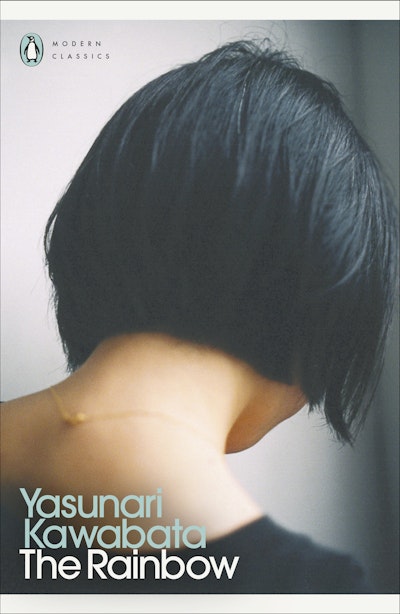- Published: 21 January 2025
- ISBN: 9780241542293
- Imprint: Penguin Classics
- Format: Paperback
- Pages: 224
- RRP: $24.99
The Rainbow
- Published: 21 January 2025
- ISBN: 9780241542293
- Imprint: Penguin Classics
- Format: Paperback
- Pages: 224
- RRP: $24.99
Kawabata's novels are among the most affecting and original works of our time
The New York Times Book Review
Kawabata is a poet of the gentlest shades, of the evanescent, the imperceptible
Commonweal
It is impossible to understand the soul of Japan without reading Yasunari Kawabata. Snow Country is his greatest hit, a beautiful novel that both reflected and shaped Japanese culture, but The Rainbow - translated into English for the first time - is Kawabata's missing classic. The Rainbow is where modern Japan begins - a nation born again in the shadow of the nuclear mushroom cloud, and in its bitter-sweet tale of two sisters is also the story of a nation struggling to find a way to live in the rubble and ruins. As always with Japan's greatest novelist, his themes - the bonds of family, wounds that will never heal , love that endures and loser boyfriends - are painfully universal. A book for anyone who loves Japan, or great story-telling, or both. Dazzling, brilliant, unmissable.
Tony Parsons
In this masterpiece Kawabata, his brush dipped in silver, renders all the excruciating anguish and beauty of post-war Japan
Edmund White
This elegant classic by a Nobel laureate portrays a more passionate side of post-war Kyoto … From maple leave against a wide blue sky to black camellias standing in a bamboo vase, Kawabata’s prose gives pride of place to fleeting moments of natural beauty … at once a well-told story and a loving portrait of a family in transition
Christopher Harding, Telegraph
This fine novel is full of surprises.. [Kawabata] was a minimalist, whose work embraces minimalism’s hopeful assumption that, in the right hands, a string of minute details—a phrase, an unspoken gesture, a linking of gazes—may unlock a multitude of meanings. Look closely, listen carefully, is the first tacit message of Kawabata’s novels. The second is, Let my story burrow inward. There is more here than meets the eye and ear
Brad Leithauser, Wall Street Journal




